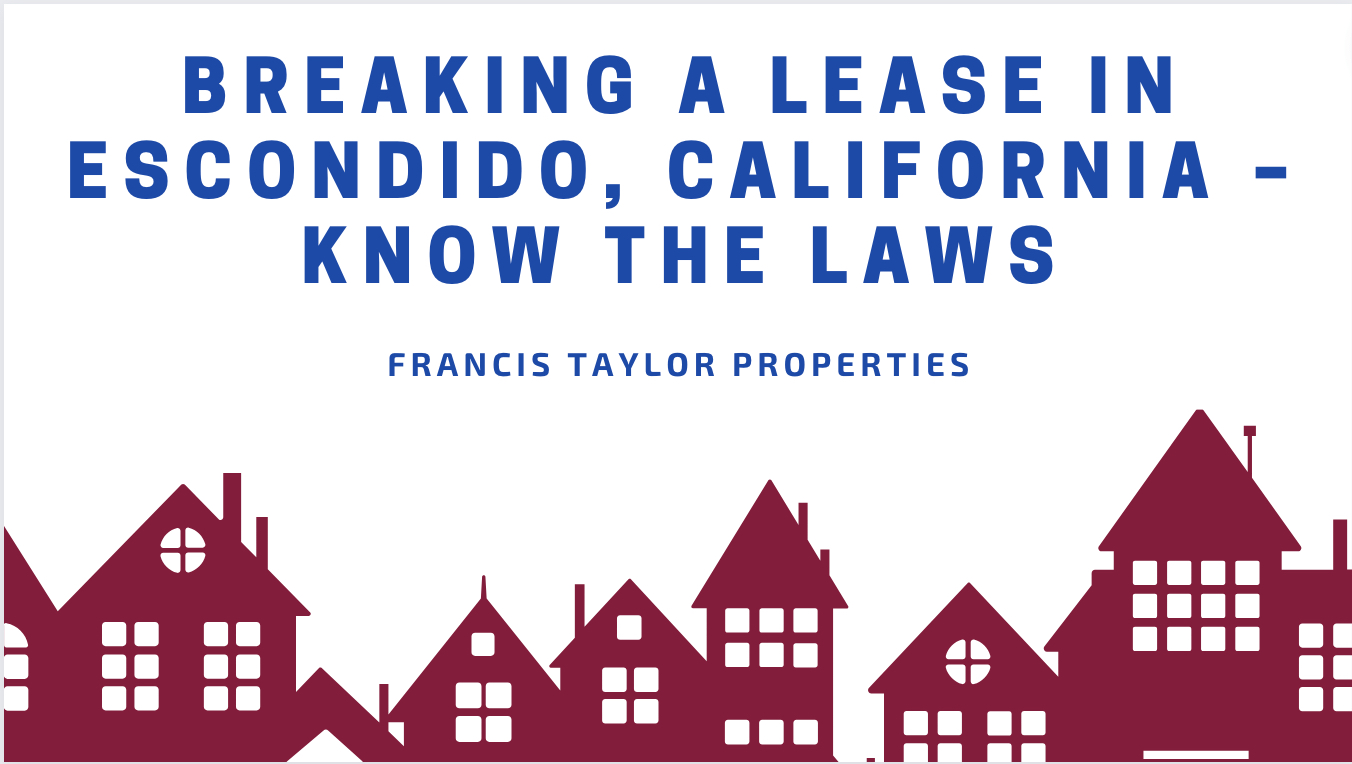It’s every landlord’s dream to find a great renter that stays for the entire lease term in California. But despite your efforts and the tenant’s good intentions to fulfill their lease agreement obligations, certain unexpected life situations can force them to move out early
When that happens, you’ll need to know what appropriate actions you can and cannot take as per California law. This way you avoid an illegal eviction or court costs.
In today’s article, you’ll learn both the justified and unjustified reasons for breaking a lease in California as a landlord. This will help you stay informed on California law and both landlord and renter rights.
Rental Agreements in California
The importance of requiring tenants to sign a lease agreement before moving in cannot be emphasized enough. The agreement helps summarize each party’s rights and responsibilities for the rental unit for the entire lease term.
Now, when it comes to breaking a lease in California, certain clauses are a must-have in your rental agreement, from security deposits to notice requirements. They are as follows.
- Notice Requirements. Include in the lease agreement how much notice the tenant must provide you before terminating their lease in California. This must conform to state and local laws. Under California law, tenants who pay their rent obligation on a weekly and monthly basis must provide a 7- and 30-day notice, respectively. The must also make any unpaid rent payments necessary or face legal consequences.
- Re-renting Responsibility. Do California landlords have to re-rent the unit after a tenant leaves early to mitigate damages? Yes! As a landlord, you must make reasonable efforts to re-rent the unit rather than charge your California tenants to pay all rent due under the lease in California.

- Right to Sublet the Unit. State law doesn’t give California tenants the right to sublet their units. It’s up to landlords to set the rules in their lease agreement.
Unjustified Reasons to Break a Lease in California
Reasons for breaking a lease in California will usually fall into either of two categories: unjustified or justified. When a resident has an unjustified reason, it means that they are not off the hook when it comes to their lease agreement obligations. They would still be obligated to follow the lease terms for the remainder of the lease term, including the requirement to pay rent and cover any unpaid rent.
The following are some examples of unjustified reasons for breaking a lease in California.
- The tenant moved into the house they recently bought
- The tenant got divorced or separated from their significant other
- The tenant is moving in with their significant other
- The tenant is moving to another city due to work commitments
However legitimate any of these reasons may be, they are still legally unjustified under California laws. Tenants will still have to pay rent when it becomes due for the remaining lease term, regardless of living there or not. Any unpaid rent will have legal consequences.
Justified Reasons to Break a Lease in California
As a landlord, it is crucial to know the justified reasons for breaking a lease in California. These reasons typically give California tenants the right to an early lease termination without having to pay further rent.
That said, the tenant must still notify their landlord on time and provide any necessary documentation before moving out. The following are examples of the legally justified reasons a tenant can use to move out penalty-free in California.
Active Military Duty
As per the Civil Relief Act, a tenant who is serving in the military on active military duty can have an early lease termination under federal law. The orders for deployment or relocation must exceed ninety days.

Additionally, the tenant must fulfill the following two requirements before breaking a lease:
- They must be in active military duty, like the National Guard, Reserve, or be a commissioned officer of the Public Health Service or the National Oceanic and Atmospheric Administration.
- The tenant must not have signed the lease in California being in active military duty.
For proof of military duty, the tenant is required to provide the landlord with their ID, or a copy of the letter from their bosses.
Domestic Violence
This is another ground for breaking a lease in California under the landlord-tenant law. Besides domestic violence victims, state law also protects victims of stalking, sexual assault, and sexual abuse. The only requirement for the tenant is to furnish the landlord with appropriate proof.
The following are the various documentation that the tenant can use to prove their status.
- Documentation from a licensed professional, such as a health provider
- A protective order
- A temporary injunction
- An order of emergency protection
In addition to the documentation, the tenant must also provide their landlord with proper notice, which is a 30-day written notice.
Habitability
California tenants can also break their lease early without further rent obligation due to unlivable conditions in their rented premises. That’s why it’s important for landlords to familiarize themselves with the state’s safety and health codes.
Failure to provide running water, proper plumbing facilities, and safe railings are all things that can make your rental unit unlivable.
To learn more about your unit’s livability, contact a professional property manager for help.
Tenant Death
If a tenant dies before the lease agreement expires, their estate may be able to break their lease early without penalty. The deceased tenant must have been the sole occupant of the rental unit, however.

If they had a minor living with them, you’ll have to work out the details with the guardian.
Landlord Harassment
All successful landlords have one thing in common – they treat their tenants equally, fairly, and respectfully. They respect their tenant’s privacy, make necessary repairs on time, and treat them fairly as per the Fair Housing Act.
For a tenant to terminate their lease in California due to harassment, they must present their case before a judge. The judge will then determine whether or not they should terminate their lease in California penalty-free.
Disability
Breaking a lease in California, like in other states, may be possible for a tenant who becomes disabled. Under federal law, only specific diseases and conditions qualify as disabilities.
- Epilepsy
- HIV
- Cerebral palsy
- Heart diseases
- Multiple sclerosis
- Muscular dystrophy
- Autism
- Visual, speech, or hearing impairments
Bottom Line
Understanding California law is key to a smooth landlord experience. If you have any questions or would like expert help in the management of your rental unit or property, look no further than Francis Taylor Properties. We’d love to help you maximize your income. Get in touch to learn more!



